Jul 15, 2024
The launch of the Kitty Party App marks a new chapter in celebrating womenfor us. But this tradition of honoring and empowering women through festivals and celebrations stretches back centuries. Every corner of India boasts unique festivals that showcase the strength, resilience, and cultural significance of women.
Before we delve into the vibrant tapestry of these celebrations, let's acknowledge the significance of the Kitty Party App. In today's fast-paced world, it provides a platform for women to connect, socialize, and build communities. It's a space where they can unwind, share stories, and celebrate each other's achievements – a sentiment that resonates deeply with the spirit of many Indian festivals.
Now, let's embark on a vibrant journey across India, exploring some of the most cherished festivals that celebrate women:
South India
Telangana & Andhra Pradesh: Bathukamma, a vibrant festival in Telangana, sees women create stunning floral arrangements, called Bathukammas, to worship the goddess Maha Gauri. This celebration of creativity and devotion is a testament to women's artistic skills. The making of Bathukammas involves a meticulous selection of colorful flowers, leaves, and other natural elements, each with symbolic meaning. It's a collaborative effort, where women gather and share knowledge about local flora, creating a visually stunning display of their artistic talent and deep connection to nature.
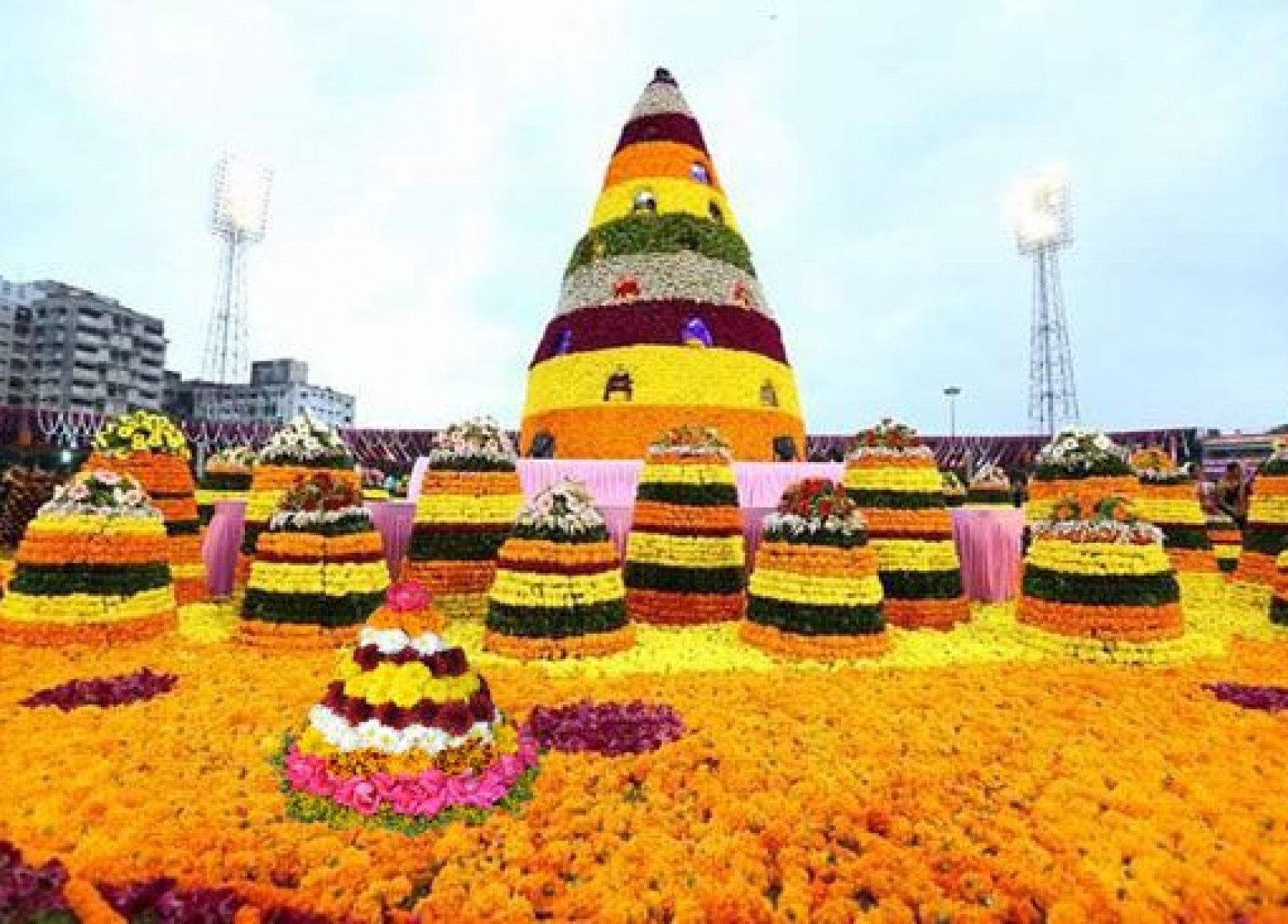
Karnataka: Attukal Pongala in Bangalore witnesses the largest gathering of women for a religious activity. Here, women cook a special offering called Pongal, a rice dish, for the goddess Attukal Amma. This festival showcases their dedication and faith. The preparation of Pongal is a meticulous process, often passed down through generations. Women gather in large numbers, singing devotional songs and sharing the workload. It's a testament to their unwavering devotion and the power of collective action.
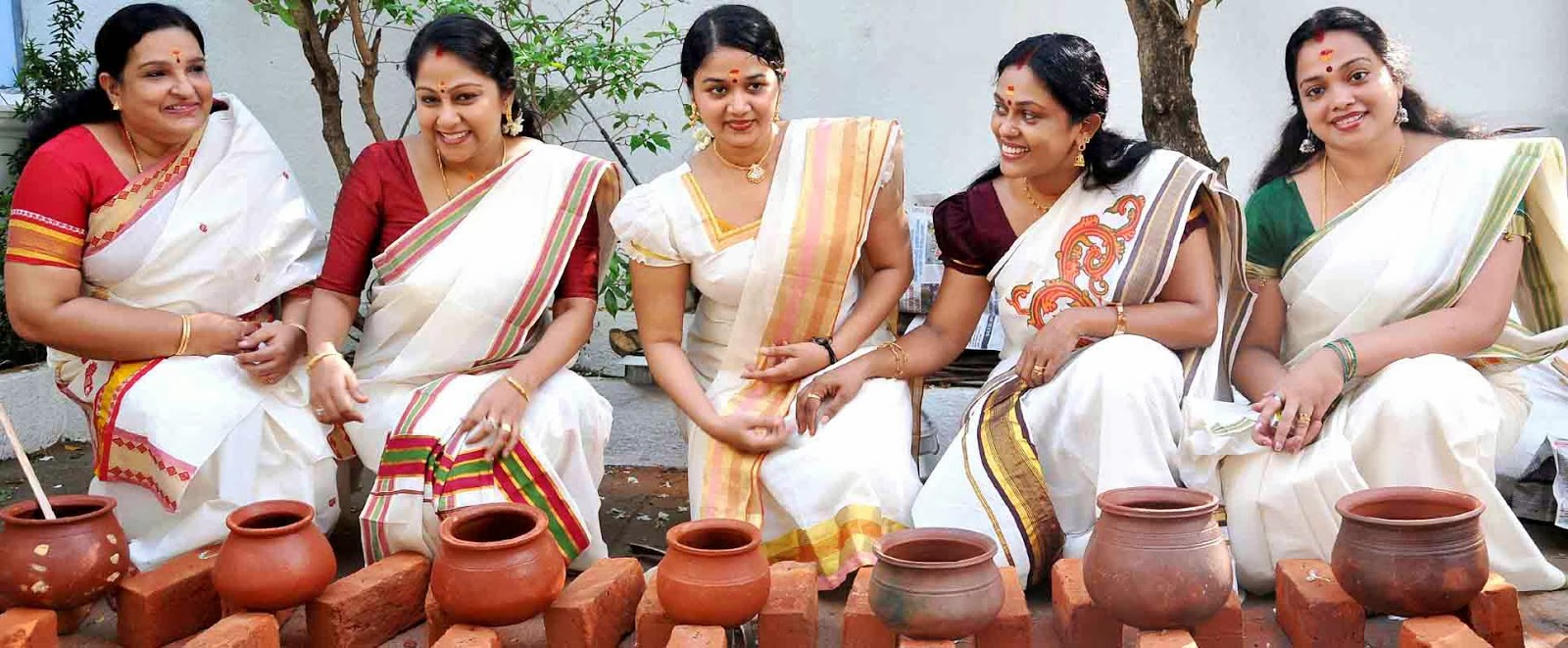
Tamil Nadu: Aadi Perukku honors the life-giving properties of water. Women perform rituals on riverbanks and offer special prayers, highlighting their connection to nature and its life-giving essence. This festival acknowledges the vital role women play in ensuring the well-being of their families and communities. They pray for bountiful crops and good health, recognizing the importance of water for sustenance.
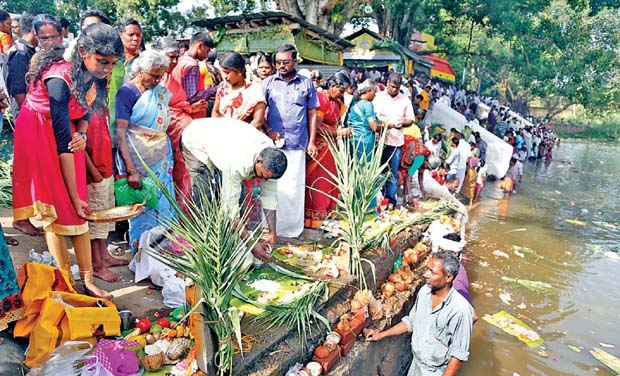
Kerala: Teej, celebrated across many North Indian states, finds a unique expression in Kerala. Here, women wear colorful attire, especially the traditional 'Mundum Neriyathu,' sing soulful songs called 'Teej vattus,' and perform rituals for their families' well-being. This vibrant celebration is a time for women to come together, share stories, and celebrate their bond. The songs sung during Teej often tell folktales and stories passed down through generations, highlighting the importance of cultural heritage.
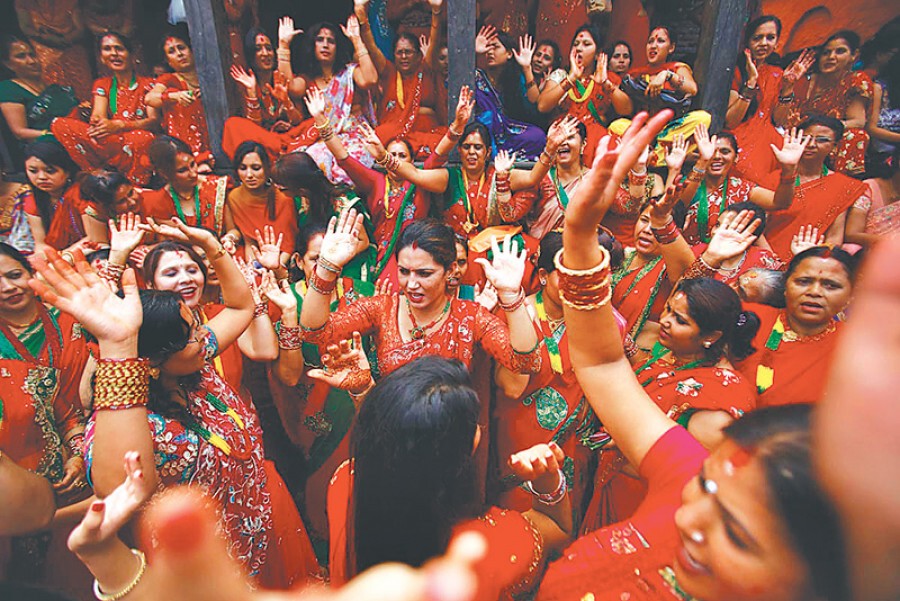
West India
Maharashtra: Mangala Gaur, a festival for newlywed women, is a joyous celebration with games, dances like 'Haldi Kumkum,' and rituals. It reflects the importance placed on women's happiness and well-being in their new lives. This tradition ensures a warm welcome for new brides into their families and communities. Through games and rituals, experienced women offer guidance and support to the newlyweds, fostering a sense of belonging and sisterhood.
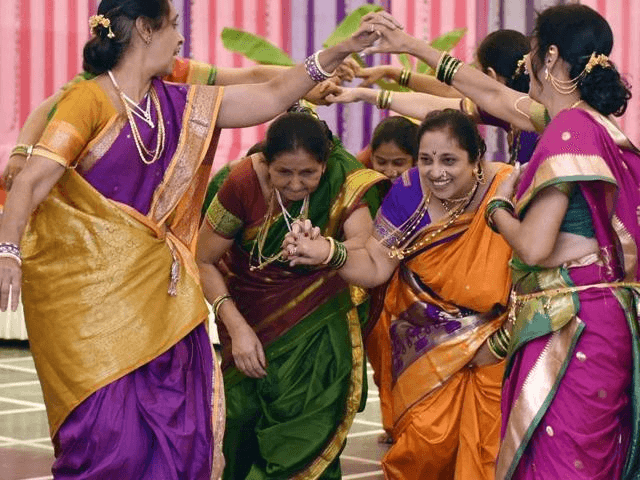
Goa: Chaitra Purnima, also known as Konkani Women's Day, involves special rituals like offering 'haldi kumkum' (turmeric and vermillion) and prayers seeking blessings for their families. This dedicated day underscores their vital role in society and provides a platform to acknowledge their contributions. Celebrations often involve traditional dances like 'Mandovi River Dance,' showcasing the rich cultural heritage of the Konkani community.
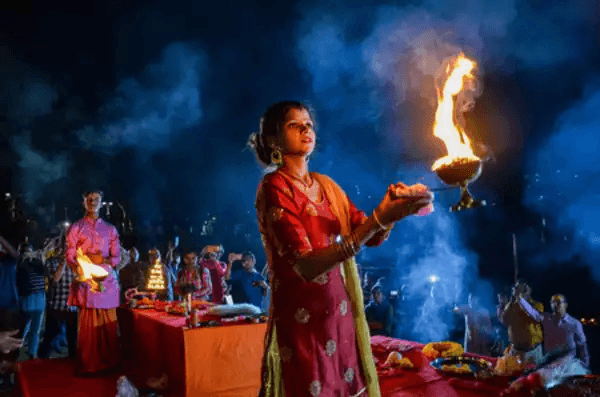
Gujarat: Navratri, the nine-night festival celebrating the goddess Durga, sees women actively participating in Garba and Dandiya Raas dances. Their energy and enthusiasm bring color and life to this grand festival. The vibrant costumes, intricate choreography, and infectious energy of these dances represent the strength and power of the feminine. It's a time for women to celebrate their inner goddess and express their devotion through dance.
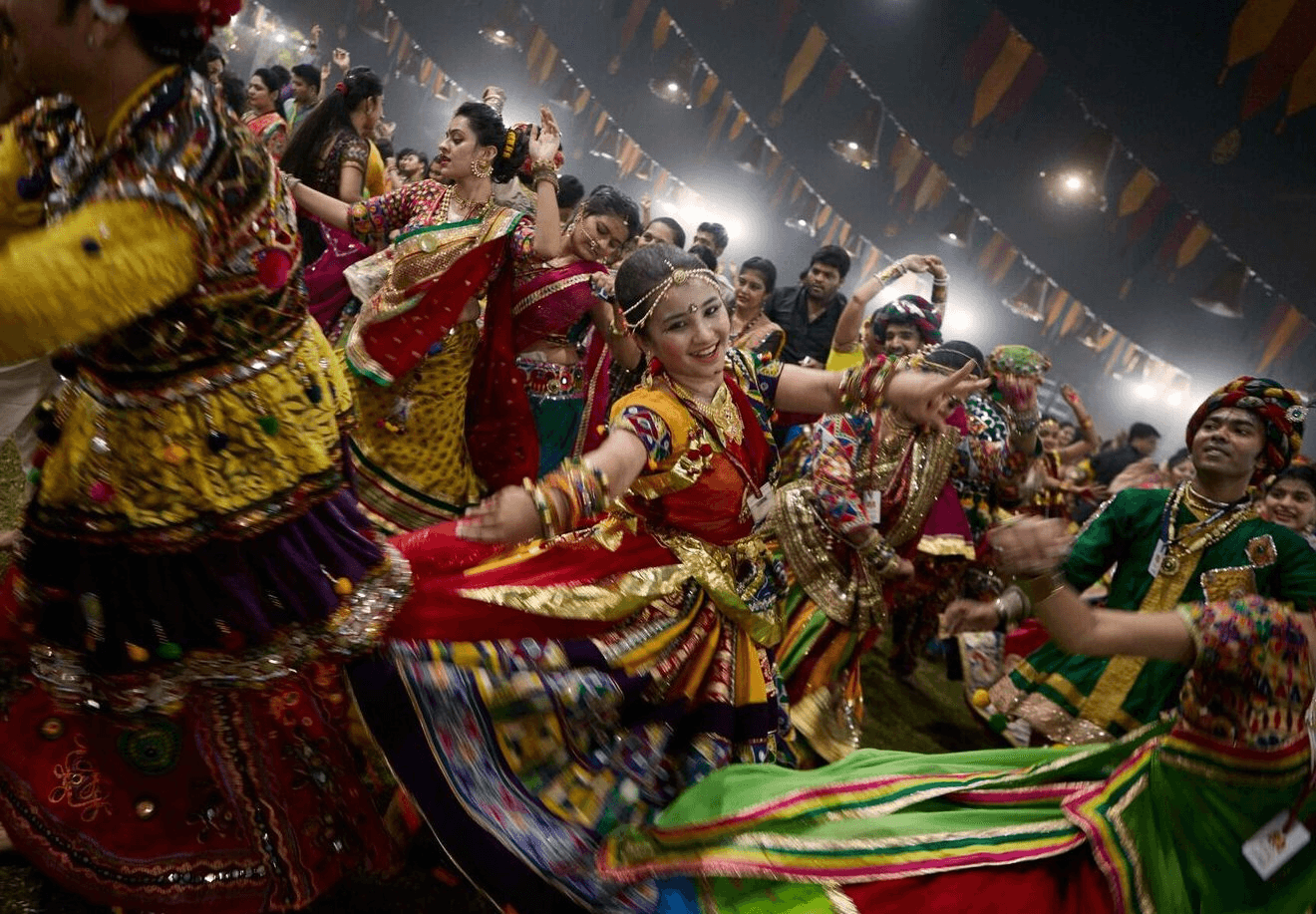
North India
Punjab: Karva Chauth is a widely celebrated festival where women observe a fast from sunrise to moonrise for their husbands' longevity. It highlights the concept of sacrifice and devotion within marriages. Though the tradition has evolved over time, it reflects the deep love and commitment women hold for their families. In recent years, many women choose to celebrate it as a day of friendship and solidarity, fasting together and strengthening their bonds.
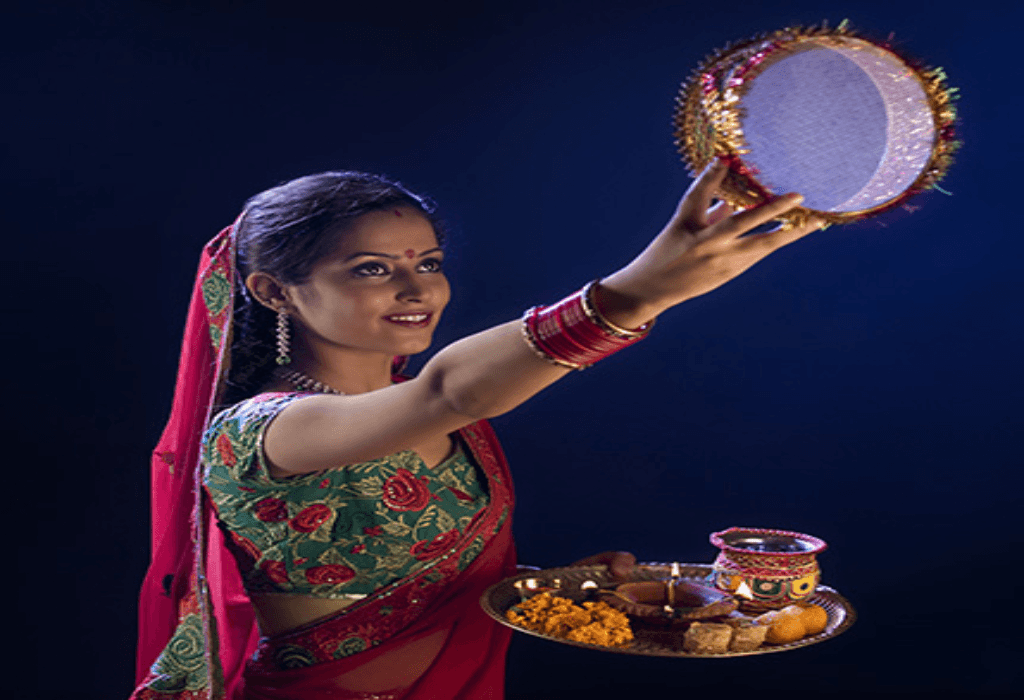
Haryana and Uttar Pradesh: Teej is celebrated with much fervor in these states. Women dress up in colorful clothes, especially green and yellow lehengas, apply intricate mehndi designs, and enjoy swinging on elaborately decorated swings called 'jhulas.' This vibrant festival is a time for merriment, bonding, and seeking blessings for loved ones. The monsoon season, during which Teej falls, is seen as a time of renewal and growth, mirroring the hopes and aspirations women hold for their families. Traditionally, women sing songs called 'Teej Geet' that tell stories of love, loss, and longing, creating a unique cultural experience.
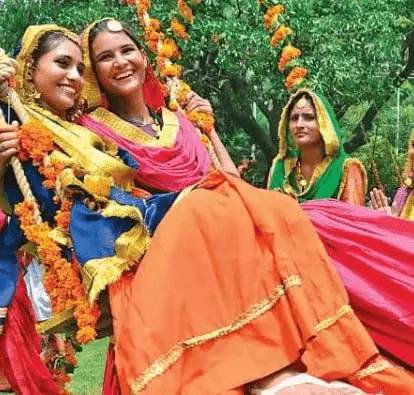
Rajasthan: Gangaur, dedicated to Gauri, the consort of Lord Shiva, is a vibrant festival celebrated with enthusiasm, particularly by newly married women. Women dress in colorful attire, carry decorated 'Gangaur' idols depicting Gauri and Shiva on their heads, and sing devotional songs in processions. This festival signifies the importance of blessings for a happy married life. Unmarried girls also participate in the festivities, praying for good husbands. The vibrant colors, lively music, and joyous atmosphere create a sense of community and shared celebration.
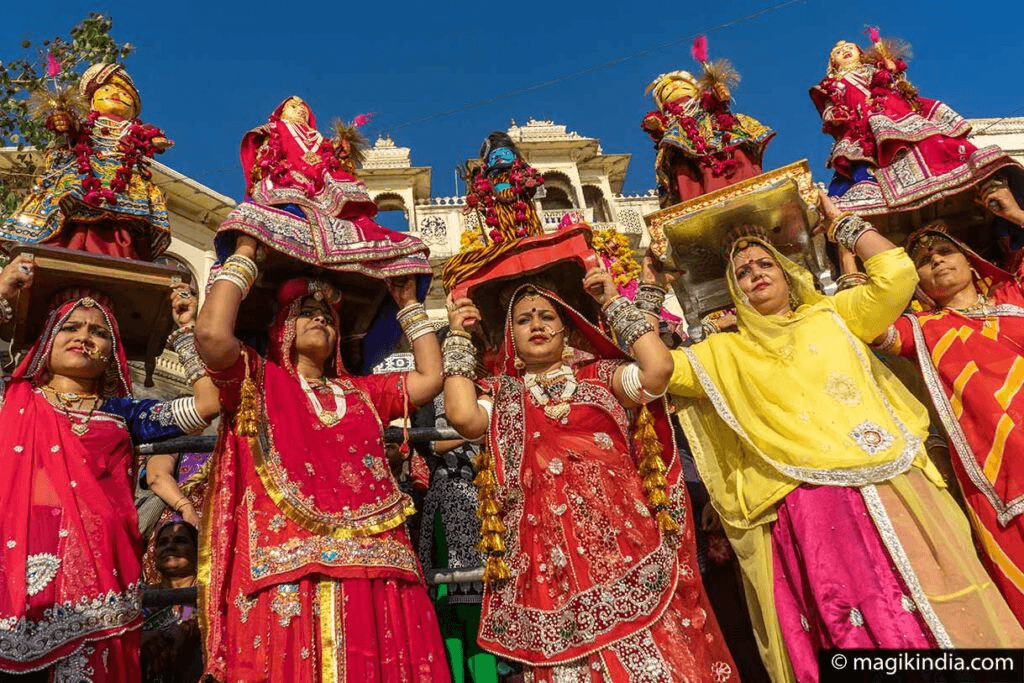
East India
Odisha: Raja Parba, also known as the "Women's Festival" or "Meher Puja," honors womanhood with a plethora of cultural activities, games like 'Dauli Khela' (throwing colored powder), and special foods like 'Pakhala' (a fermented rice dish). This inclusive festival celebrates all aspects of women's lives, their strength, resilience, and contributions to society. Traditionally, women visit each other's houses, exchange gifts, and participate in various cultural programs. It's a time for women to strengthen bonds, share stories, and celebrate each other's achievements.
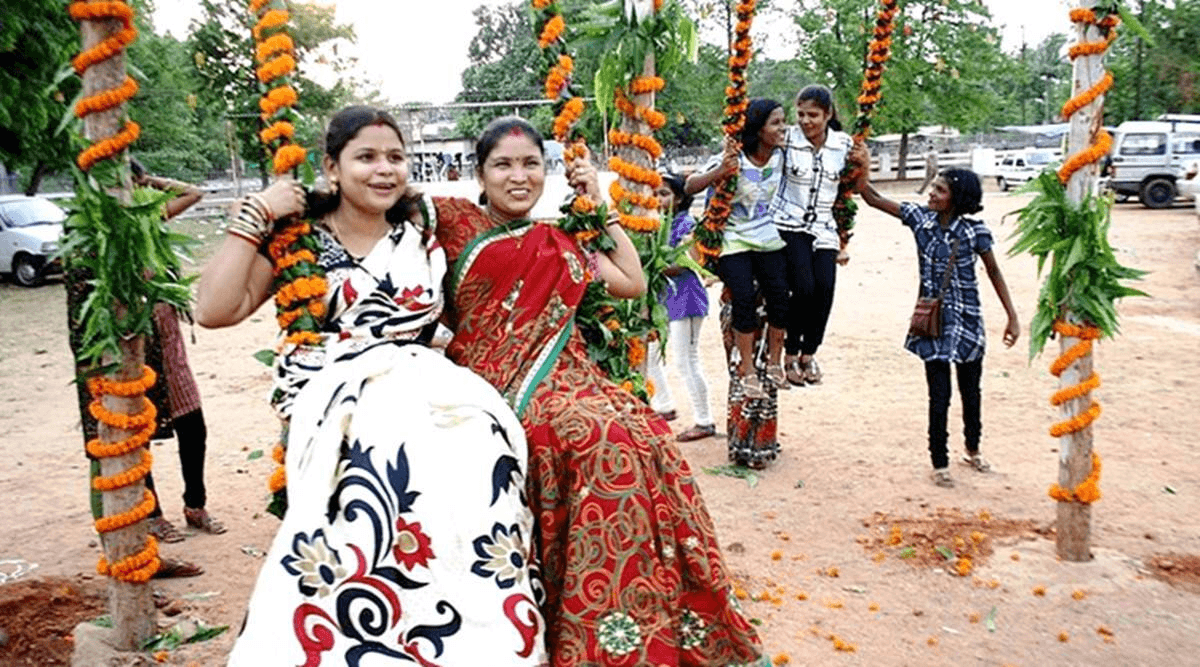
Bihar: Chhath Puja, though involving both men and women, sees women playing a central role in the four-day-long rituals, fasting, and prayers offered to the Sun God Surya. Their dedication and commitment are central to this harvest festival. Women prepare special offerings called 'prasad,' sing devotional songs, and perform rigorous rituals during Chhath Puja. Their unwavering faith and dedication showcase their vital role in ensuring the well-being of their families and communities.
West Bengal: Durga Puja, a ten-day festival, is a community celebration, but women actively participate in every aspect, from crafting the intricate clay idols of Durga to organizing cultural events. This highlights their leadership and contribution to the cultural fabric of society. Women take an active role in 'Shondhi Pujo,' the welcoming ceremony of the goddess, and participate in elaborate 'Sindoor Khela' rituals, where women smear vermillion on each other's foreheads as a symbol of blessings and prosperity. Their dedication and enthusiasm are central to the vibrant spirit of Durga Puja.
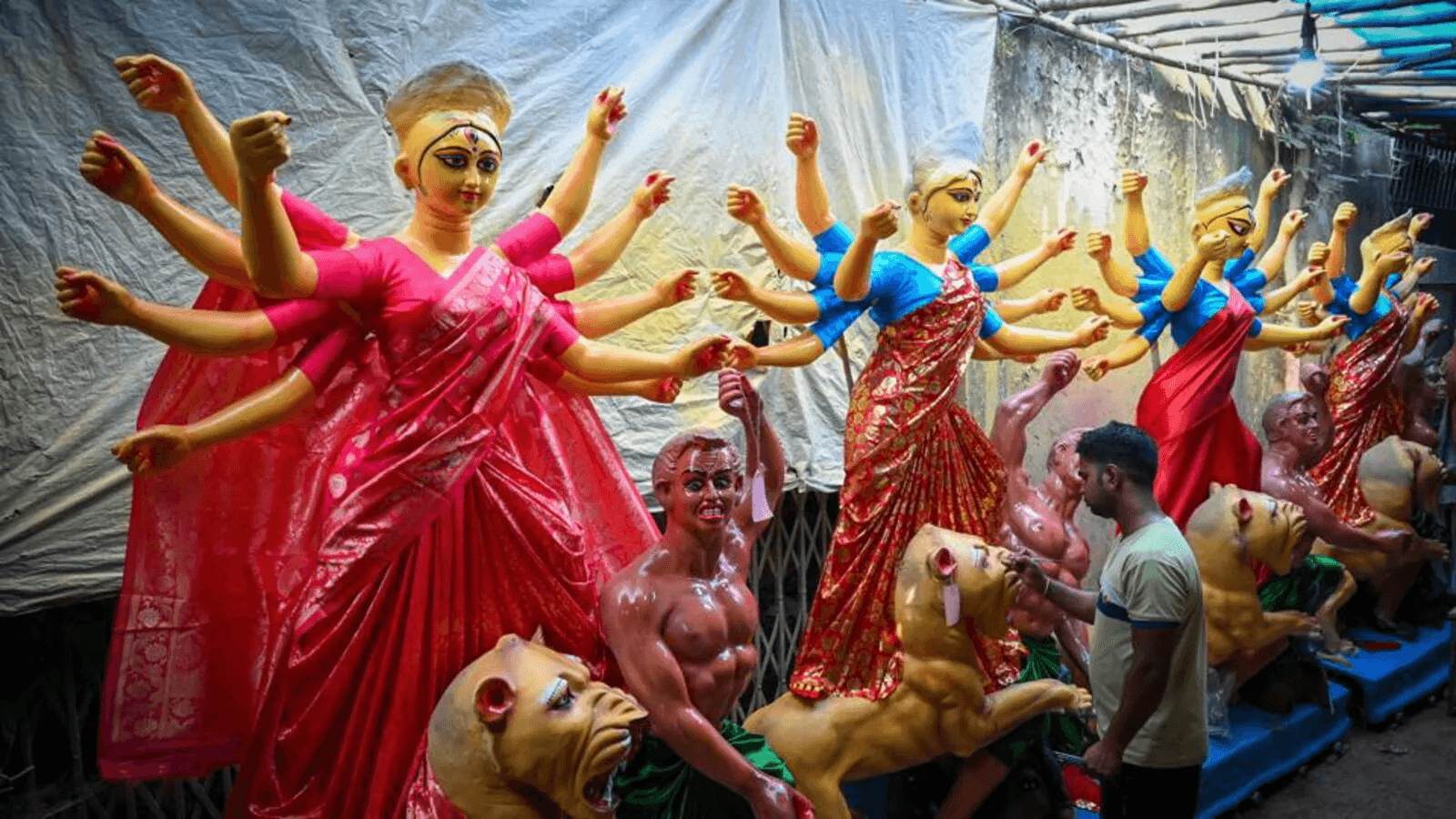
The Evolution of Women's Celebrations
While many cultures view menstruation as a time of impurity, some regions in South India have unique traditions that celebrate this natural biological process. In Kerala, the Thirandukalyanam ceremony marks a girl's menarche. Believed to signify the homecoming of the goddess Bhagwati, the girl undergoes a coconut oil massage and cleansing with Vaka flowers.
This is followed by a series of rituals over 5-6 days, culminating in a purification ritual by a priest and the offering of coconut leaf ornaments. Similarly, Tamil Nadu observes the Ritu Kala Samskara or Half-Saree ceremony. Here, the girl receives a half-saree and undergoes a turmeric bath, symbolizing her transition into womanhood.
These rituals, though sometimes debated for their restrictive elements, also acknowledge menstruation as a natural and significant milestone in a woman's life. Many of the festivals are not merely static traditions; they have evolved over time, reflecting the changing social landscape of India. While many festivals have traditionally focused on women's roles within families and communities, there's a growing emphasis on women's empowerment.
Festivals like Raja Parba in Odisha are increasingly seen as platforms to celebrate women's achievements in various fields. Some festivals are becoming more inclusive, with men participating alongside women. For instance, Karva Chauth, traditionally observed by wives for their husbands' well-being, is now sometimes celebrated by couples together, fostering a sense of partnership.
Conclusion
The Kitty Party App is a testament to the ongoing evolution of how women celebrate themselves in India. As the country continues to progress, these celebrations will undoubtedly continue to adapt and evolve. Yet, the core essence remains the same – a deep respect for women, their strength, and their invaluable contributions to society. These vibrant festivals, along with modern platforms like the Kitty Party App, ensure that the legacy of celebrating women in India continues to thrive.

